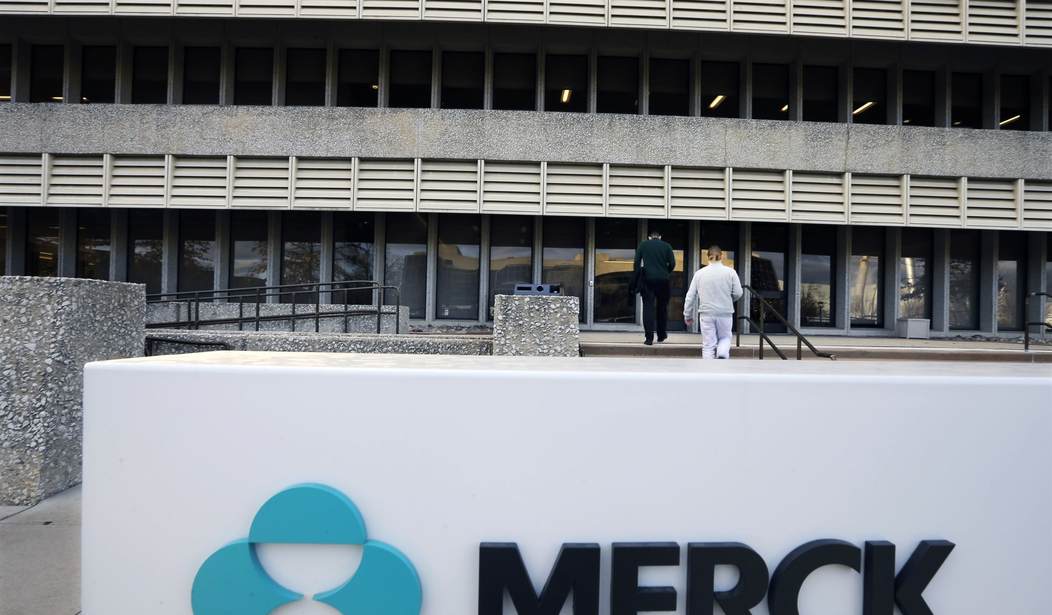On Friday, Merck & Co. and Ridgeback Biotherapeutics announced that an experimental pill they developed together promised to cut the risk of hospitalization or death from COVID-19 by roughly 50 percent. The drug, called molnupiravir, is in late-stage trials and could be authorized for emergency use by the end of the year.
The Wall Street Journal noted that “[I]f cleared by regulators, the drug would be the first oral antiviral for Covid-19.” They also described it as a “Tamiflu for COVID-19” that could be “dispensed to patients when they first develop symptoms, slowing the spread of the virus in the body and potentially preventing people from becoming seriously ill.”
That sounds like great news, right? Think of the lives that could be saved and all that, right? This could be a game-changer!
Yeah, well, we may have had a game-changing drug already, and we knew about it in the earliest weeks of the pandemic, except no one wanted to believe it.
On March 19, 2020, during a press briefing, President Trump mentioned a small French study that found antimalarial drugs chloroquine and hydroxychloroquine showed promise as a potential treatment for COVID-19 and directed the FDA to fast-track clinical trials to approve them as therapeutics.
At the time, the economy was still going strong, and things were looking good for his reelection. The Democrats’ impeachment failed miserably, the left was desperately looking for anything to thwart his reelection, and the pandemic was quickly politicized. If a decades-old, out-of-patent anti-malaria drug was an effective treatment against COVID, the last thing the Democrats needed was a cheap and readily available drug to save the day for Trump. So, with the help of the media, Trump was demonized for promoting the drug.
The USA Today editorial board said Trump “peddles snake oil and false hope.” CNN claimed that “to fight the coronavirus, President Donald Trump is adopting the audacity of false hope.”
The drug itself was likened to poison by some outlets.
“Trump was at the White House podium peddling a fake cure for a virus that could kill hundreds of thousands of Americans in a way that would have gotten him kicked off the Home Shopping Network and potentially invited federal prosecution for false claims and fraud,” claimed Salon. When Trump revealed he was taking hydroxychloroquine prophylactically, Joe Biden likened it to him injecting himself with Clorox. Democrat governors joined in and restricted the use of the drug so it couldn’t be used as a treatment for COVID.
There have been over 290 studies into hydroxychloroquine’s effectiveness in treating COVID-19. While some studies have shown mixed results or adverse events, the overwhelming majority of them show positive results—including a large-scale study published in July conducted by the Henry Ford Health System that found a 50 percent reduction in mortality in patients who took hydroxychloroquine.
But the media chose to ignore those studies and instead reported on a few heavily flawed studies that allegedly showed the drug was either ineffective or increased mortality. Dr. Fauci even dismissed the drug’s potential for treating COVID patients, claiming that “valid” scientific data showed hydroxychloroquine wasn’t effective in treating COVID-19. Nevertheless, doctors who used it to treat COVID patients found positive results. Unfortunately, many of those who spoke out in support of the drug were censored.
Hydroxychloroquine deserved a chance to be properly assessed as a treatment for the coronavirus. Unfortunately, the media’s deliberate attempts to downplay the drug’s potential because of Trump and intensify coverage of its side effects made conducting studies on its use as a coronavirus treatment difficult.
Merck’s new drug may work, and for sure, if it’s approved, the Biden administration will buy millions and millions of doses at a high cost to help bring down COVID death rates, but make no mistake about it: We had a potential game-changer drug already. It is also out of patent and could have been produced cheaply by all pharmaceutical companies. Would they have made a ton of money on it? No. But who knows how many lives could have been saved.
But hey, no more mean tweets, right?










